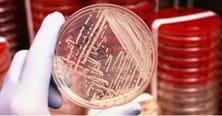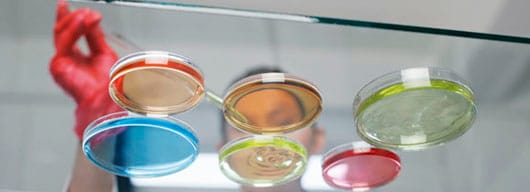Paper Demystifies “the Great Plate Count Anomaly”

Researchers have found out one of the main reasons behind irregularities in gel based bacterial cultures. Formation of Hydrogen Peroxide in the culture medium as the result of auto-claving turned out to be the culprit.
For a very long time researchers have scratched their heads over their inability to culture microorganisms that they can easily view in collected samples under a microscope. It turns out that researchers we doing it wrong all this time. For most past of the last two decades, researchers have been teaching and taught to mix the culture media and autoclave it together. In studies conducted by Tanaka et. al., researchers have found out that autoclaving the culture medium mixture produces harmful byproducts that kill the microorganisms that were meant to be cultured in the first place.
Separately Autoclaving Media
The agar while being autoclaved with the phosphate produces hydrogen Peroxide, a powerful toxic that kills bacteria that lack the peroxide catalyzing enzyme. What reaction actually causes the production of Hydrogen Peroxide is a mystery. To further prove their point, researchers were able to easily cultivate the hard to culture bacterial cells by autoclaving the agar and phosphate’s separately. There was a huge increase in the taxa cultivated from soil, river and sediment samples, even the hard to culture Armatimonadetes and Verrucomicrobia variety.
Although the authors did not vary the components of the media, they believe that further research and optimization of the media components and their reactions can amplify bacterial production. However, for now the researcher’s suggest that autoclaving media separately can have a huge effect on bacterial taxonomy .
Source: anaka T, Kawasaki K, Daimon S, Kitagawa W, Yamamoto K, Tamaki H, Tanaka M, Nakatsu CH, & Kamagata Y (2014). A hidden pitfall in the preparation of agar media undermines microorganism cultivability. Appl Environ Microbiol, 80 (24), 7659 – 7666 PMID 25281372

